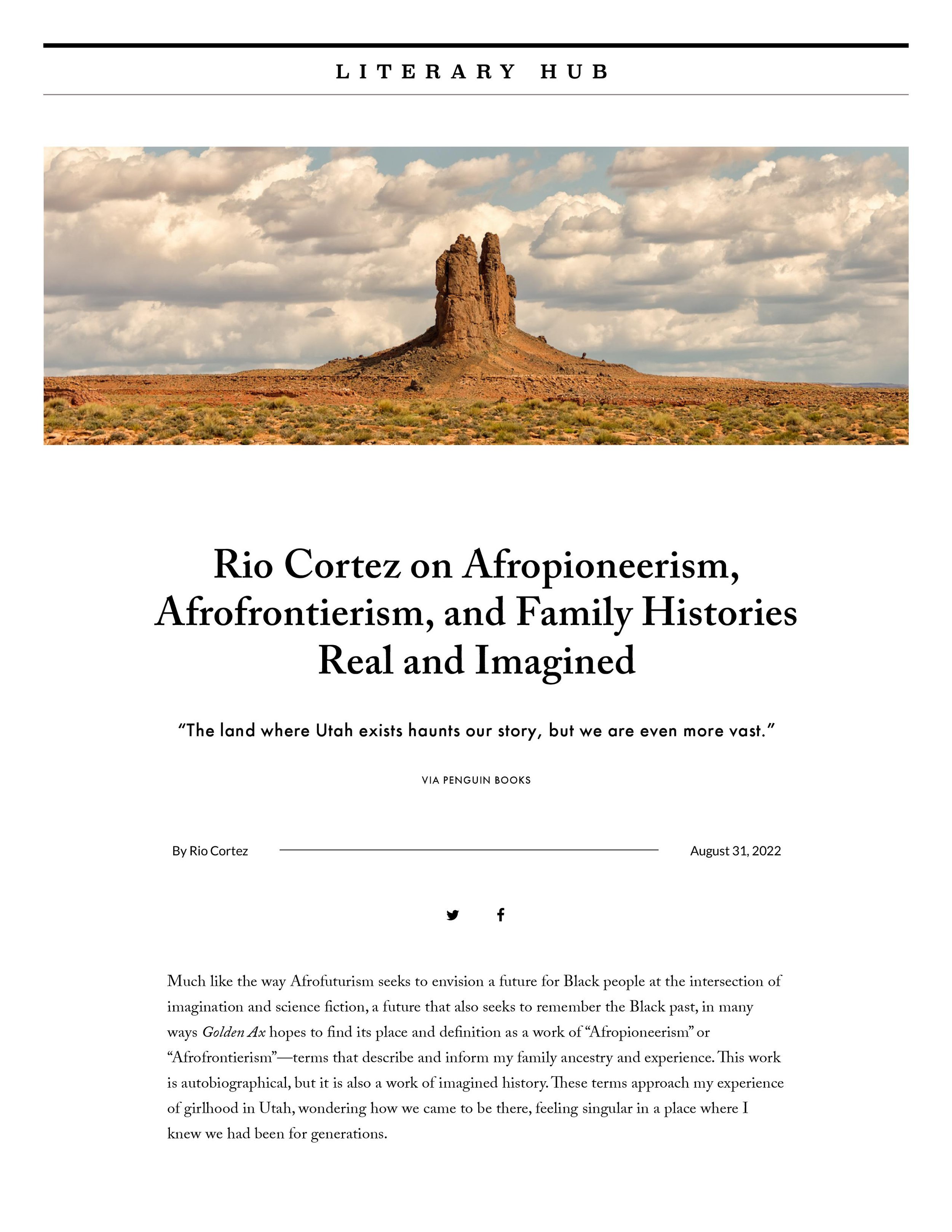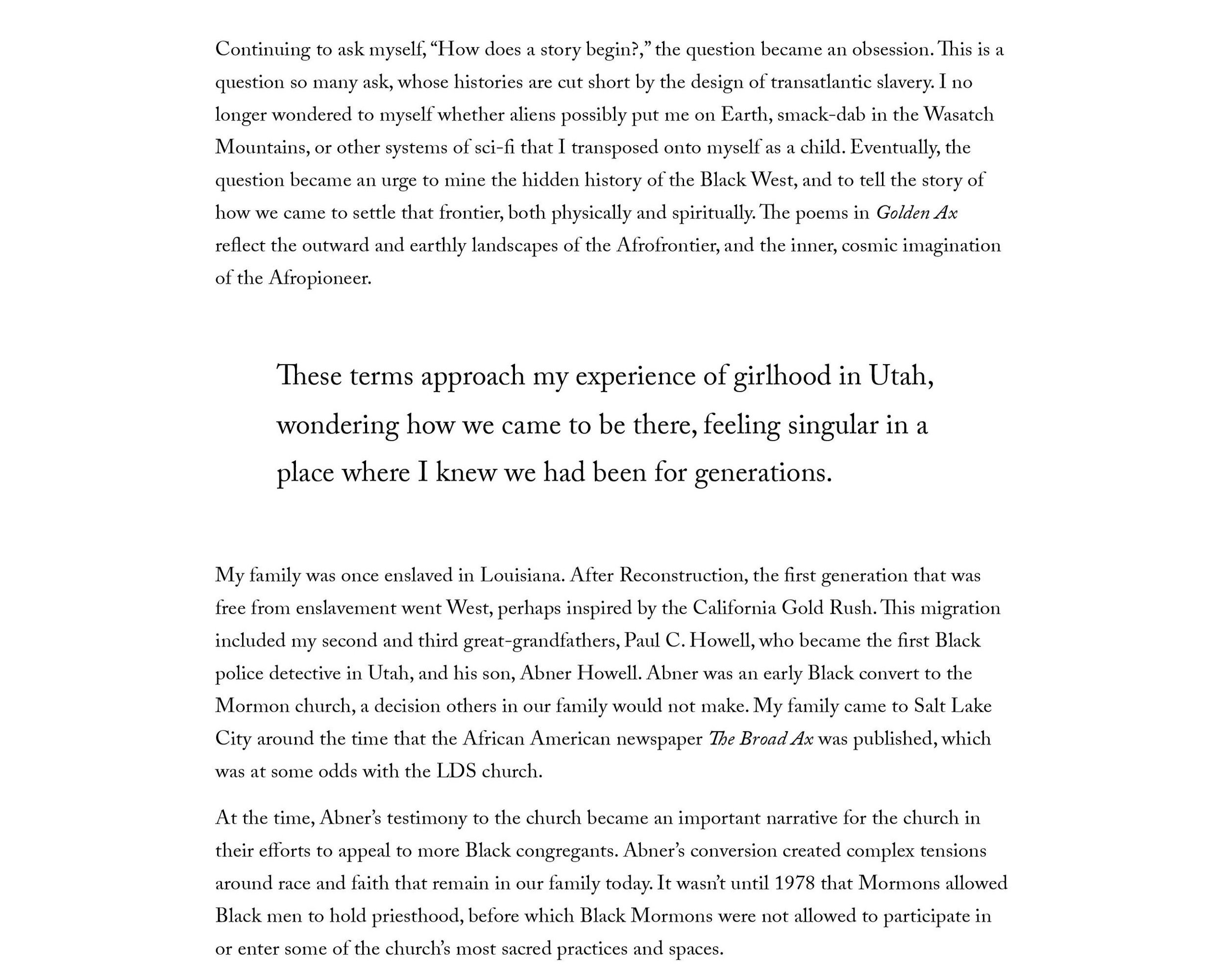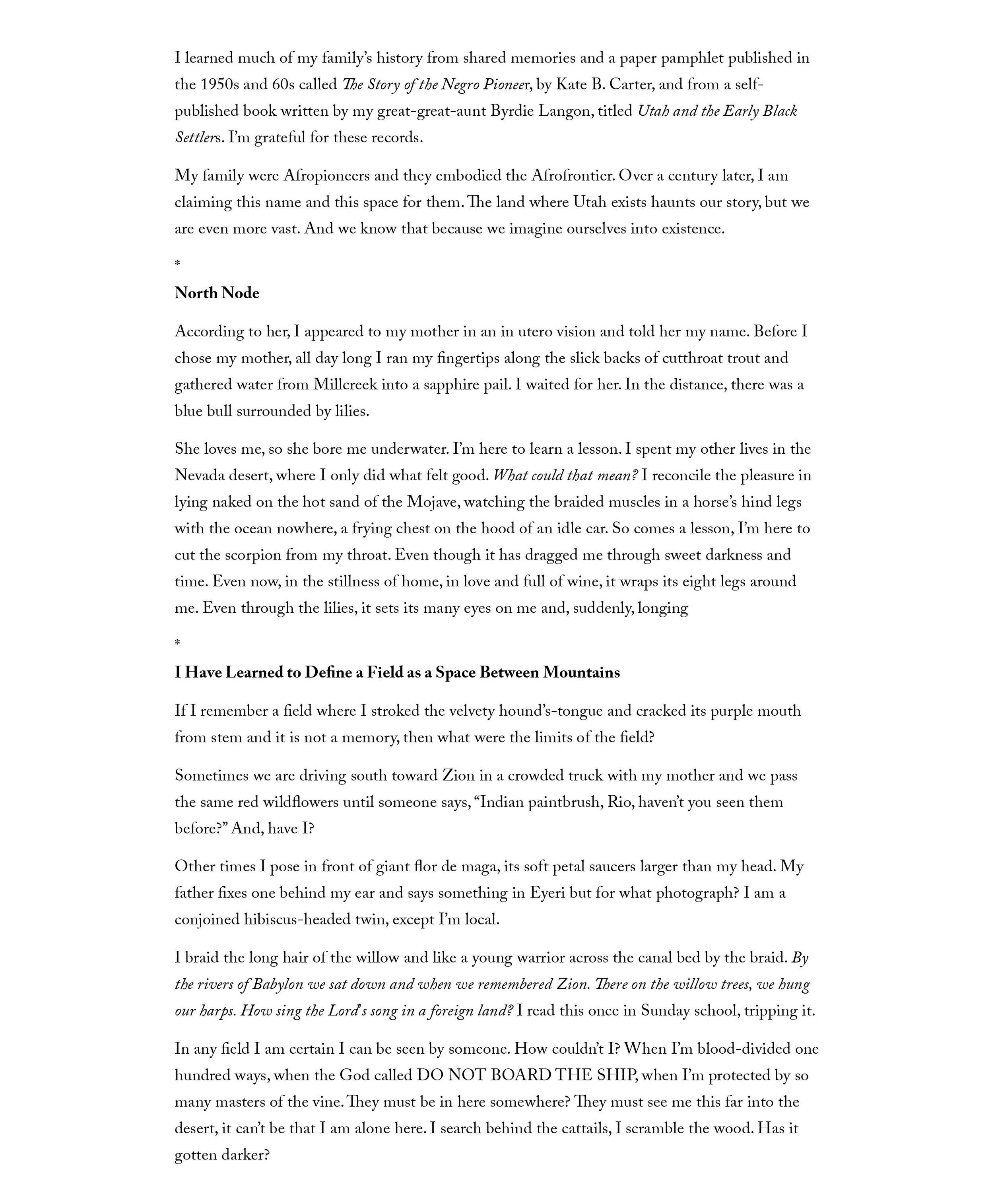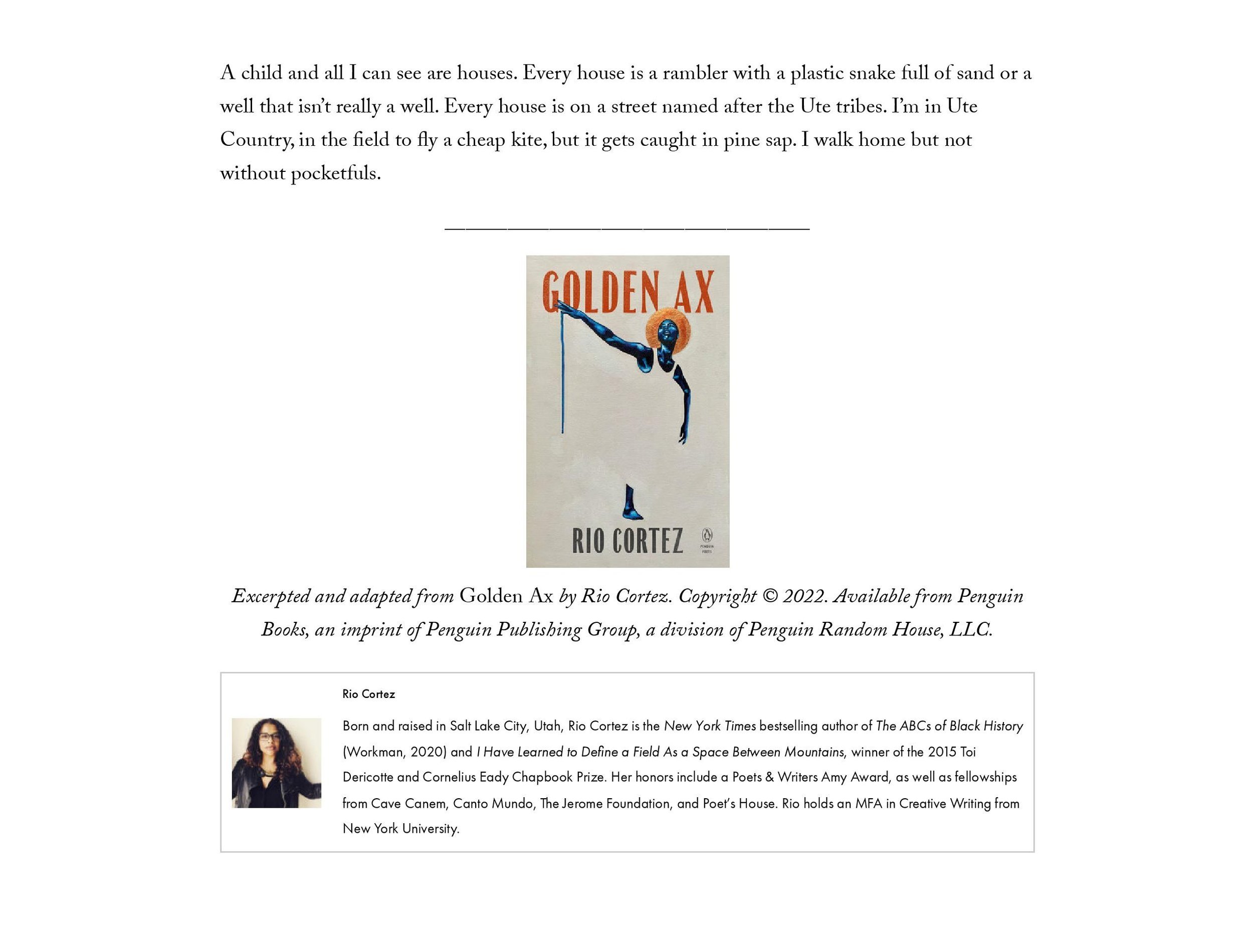Andrew Lawrence Interviews Blackdom Historian Timothy E. Nelson, Ph.D. on January 16, 2020
Golden Ax by Rio Cortez · Google Books Audiobook preview: https://www.youtube.com/watch?v=UhX1dBh4W4k&t=8s
Much like the way Afrofuturism seeks to envision a future for Black people at the intersection of imagination and science fiction, a future that also seeks to remember the Black past, in many ways Golden Ax hopes to find its place and definition as a work of “Afropioneerism” or “Afrofrontierism”—terms that describe and inform my family ancestry and experience. This work is autobiographical, but it is also a work of imagined history. These terms approach my experience of girlhood in Utah, wondering how we came to be there, feeling singular in a place where I knew we had been for generations.
Continuing to ask myself, “How does a story begin?,” the question became an obsession. This is a question so many ask, whose histories are cut short by the design of transatlantic slavery. I no longer wondered to myself whether aliens possibly put me on Earth, smack-dab in the Wasatch Mountains, or other systems of sci-fi that I transposed onto myself as a child. Eventually, the question became an urge to mine the hidden history of the Black West, and to tell the story of how we came to settle that frontier, both physically and spiritually. The poems in Golden Ax reflect the outward and earthly landscapes of the Afrofrontier, and the inner, cosmic imagination of the Afropioneer.
NOTE: Rio Cortez, Penguin Books and LitHub have validated the word Afrofrontier to be one word without a hyphen; according to Dr. Nelson, it was discussed at length amongst his dissertation committee; it didn’t exist at the time so the hyphen was required.
Links to other articles:
https://www.globeslcc.com/2023/04/24/rio-cortez-golden-ax-poetry-reading-taylorsville-campus/
https://www.shondaland.com/inspire/books/a41002124/rio-cortez-golden-ax/
https://the1a.org/segments/poet-rio-cortez-on-afropioneerism-and-black-settlers-out-west/
https://www.poetryfoundation.org/harriet-books/reviews/158301/golden-ax
“They called it Blackdom for a reason. This was a Black Kingdom where sovereigns lived.”
—Timothy E. Nelson
Some 60-plus years before African Americans marched and fought for equal treatment in the nation’s civil rights movement, Blackdom stood as a symbol that African Americans could be masters of their own destiny.
“Blackdom proved black people could thrive, not just survive,” said African American historian and author Timothy Nelson, who wrote a 200-page dissertation on the rise and fall of Blackdom in 2015 for the University of Texas at El Paso.
“They called it Blackdom for a reason. This was a Black Kingdom where sovereigns lived,” he said.
And yet, some 30 years after its founding in the early 1900s, Blackdom was all but abandoned, a victim of drought, nature and an oil boom gone bust because of the Great Depression.
Today, a plaque commemorating the history of Blackdom and a few stone ruins are all that remain of the original community, located about eight miles west of Dexter and 20 miles south of Roswell.
Blackdom’s fight for a self-sustaining life came decades before King urged African Americans to take to the streets to demand equality with such phrases as, “If you can’t fly then run if you can’t run then walk if you can’t walk then crawl, but whatever you do, you have to keep moving forward.”
KUNM | By ty bannerman
Published June 11, 2019, at 9:43 AM MDT
New Mexico has rich African American history and culture beginning with the arrival of Spanish explorers, continuing with the Homestead Act, through the Civil Rights era, and into the present day. In celebration of Juneteenth, we'll hear from folks who are working to preserve and share this legacy here.
We want to hear from you! How do you and your friends and family recognize Juneteenth? Do you have a family or personal history that showcases a unique experience of being black in New Mexico? What questions do you have about the history of black folks here? Email LetsTalk@KUNM.org, tweet us using the hashtag #LetsTalkNM or call in live during the show.
Guests:
Cathryn McGill, Founder, and Director, New Mexico Black History Organizing Committee
Rita Powdrell, Executive Director, African American Museum and Cultural Center of New Mexico
Ebony Isis Booth, Founder, Burque Noir
Jim Harvey, President, African American Performing Arts Center and Exhibit Hall
Jon Ghahate, 17:12 Cultural Educator at the Indian Pueblo Cultural Center
(NOTICE: Jon Ghahate was not listed as a guest on KUNM link.)












